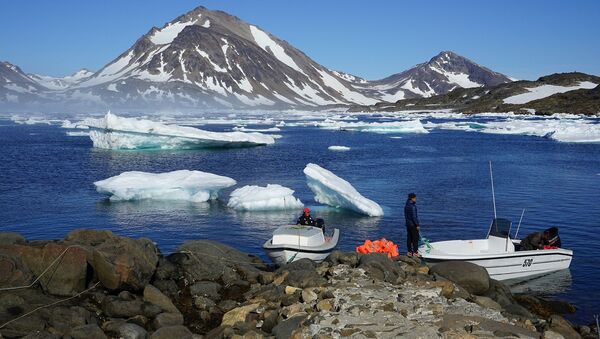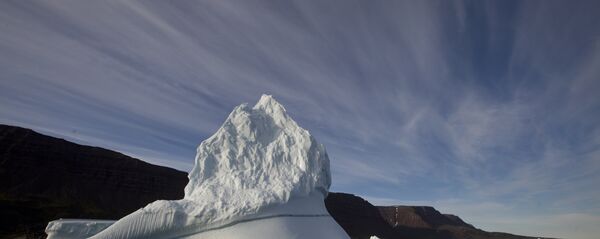According to Danish climate professor Sebastian H. Mernild, CEO of the Nansen Environmental and Remote Sensing Center in Bergen, Norway, the melting of, above all, the Greenland Ice Sheet may result in a marked freshwater influx that could substantially weaken the Atlantic Ocean's intricate system of surface and deep ocean currents, including the Gulf Stream, which is responsible for keeping Europe temperate, Danish newspaper Berlingske reported.
The rise of the meltwater from the Greenland Ice Sheet is expected to be accelerated by the growing density of greenhouse gases in the atmosphere. Therefore, the balance of the ocean currents may be upset at a faster pace.
In the nightmare "business as usual" scenario, which anticipates that carbon dioxide emissions will grow as before, the Gulf Stream will have lost about 37 percent of its strength by 2100. By around 2300, the colossal hot water pump will have lost about 75 percent of its momentum and will have a 44 percent risk of collapsing completely, the researchers concluded.
"The changes in the Gulf Stream and sea ice, coupled with the recent development in Antarctica, where many glaciers have proved unstable, imply that we are treading into unknown terrain," Sebastian H. Mernild said, stressing the fact that Antarctica contains up to eight times more ice than Greenland.
Earlier this year, both the Arctic and Antarctic experienced record lows in sea ice extent, when astonished scientists saw ice actually retreating at a time when the region is entering the cold darkness of winter. In addition to the shrinking ice surface, the increasing temperatures have caused the permafrost to thaw. This is releasing even more greenhouse gases into the atmosphere, making swaths of the Arctic a net source of global warming pollution. As a result of further global warming, sea levels may rise several meters in the coming centuries, sinking long stretches of coastland.
Greenland, which covers an area larger than France, Spain and Germany combined, is basically the northern hemisphere's largest ice block, and holds enough frozen water to lift the world's ocean level by over seven meters.
Never miss a story again — sign up to our Telegram channel and we'll keep you up to speed!





